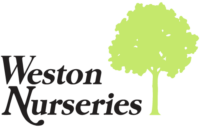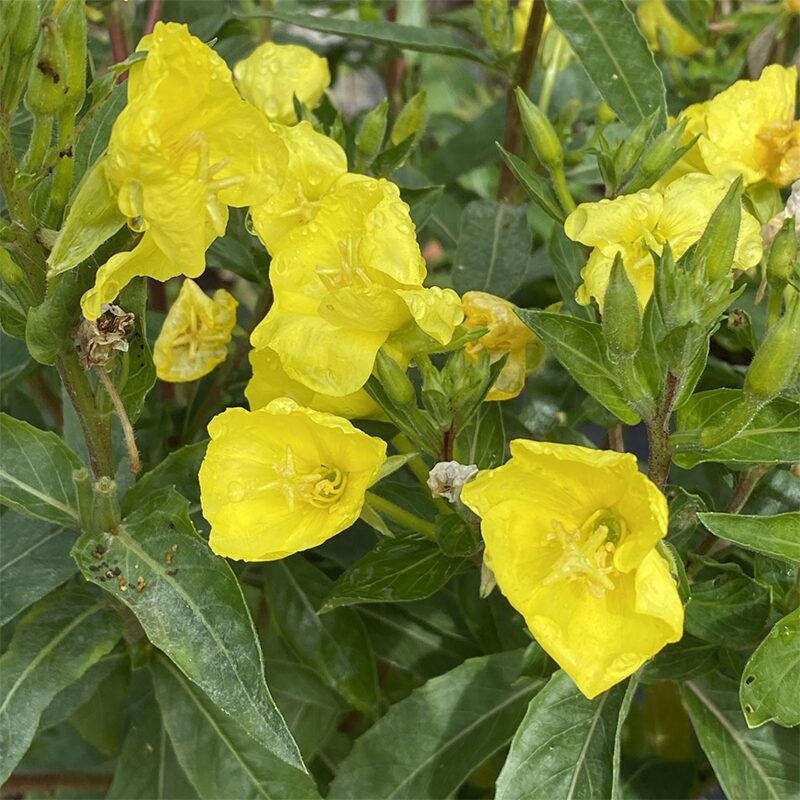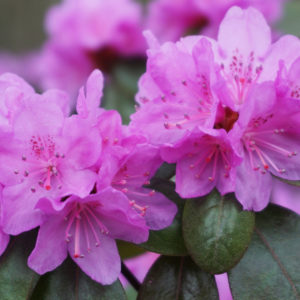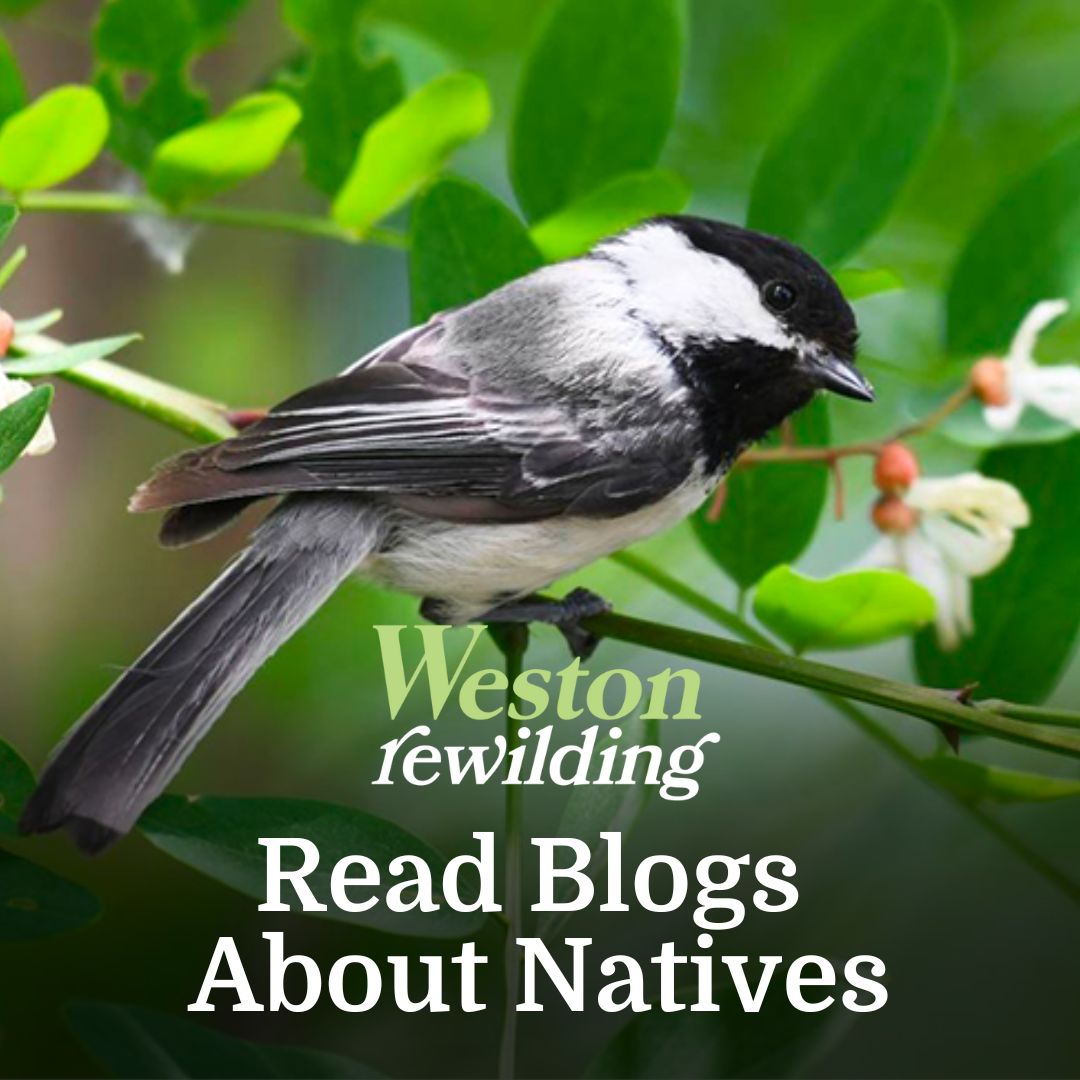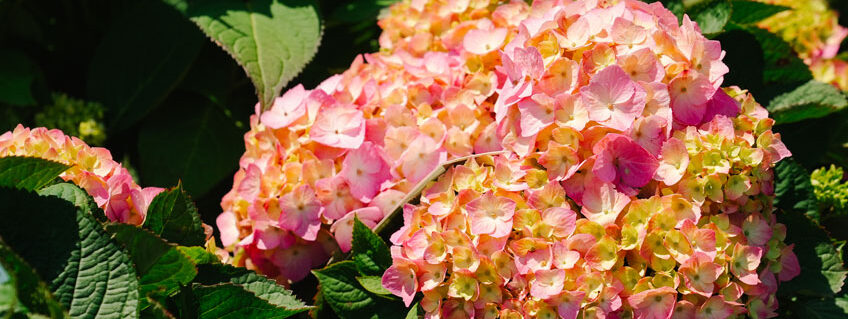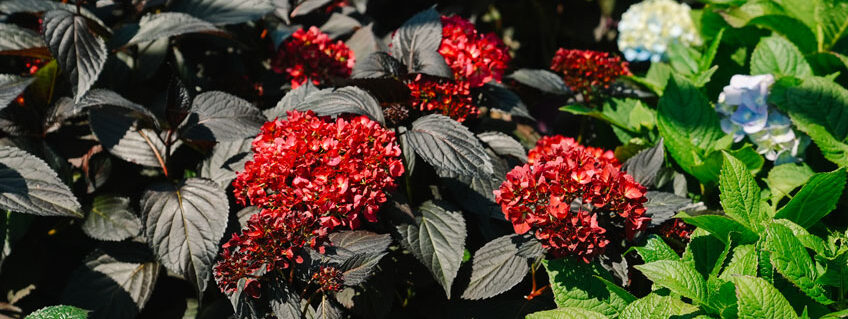In this article I want to highlight three plants that certainly have their charms where flowers are concerned, but to some degree or another are considered weeds. They all attract pollinators, because many bees are generalists in their feeding habits and don’t mind unduly if the plant is a native, a cultivated introduction, a weed or worst of all, an invasive plant. Bear in mind that weeds can be defined as any plant in the wrong place and that definition can be applied to many plants as beauty and value is in the eye of the beholder!
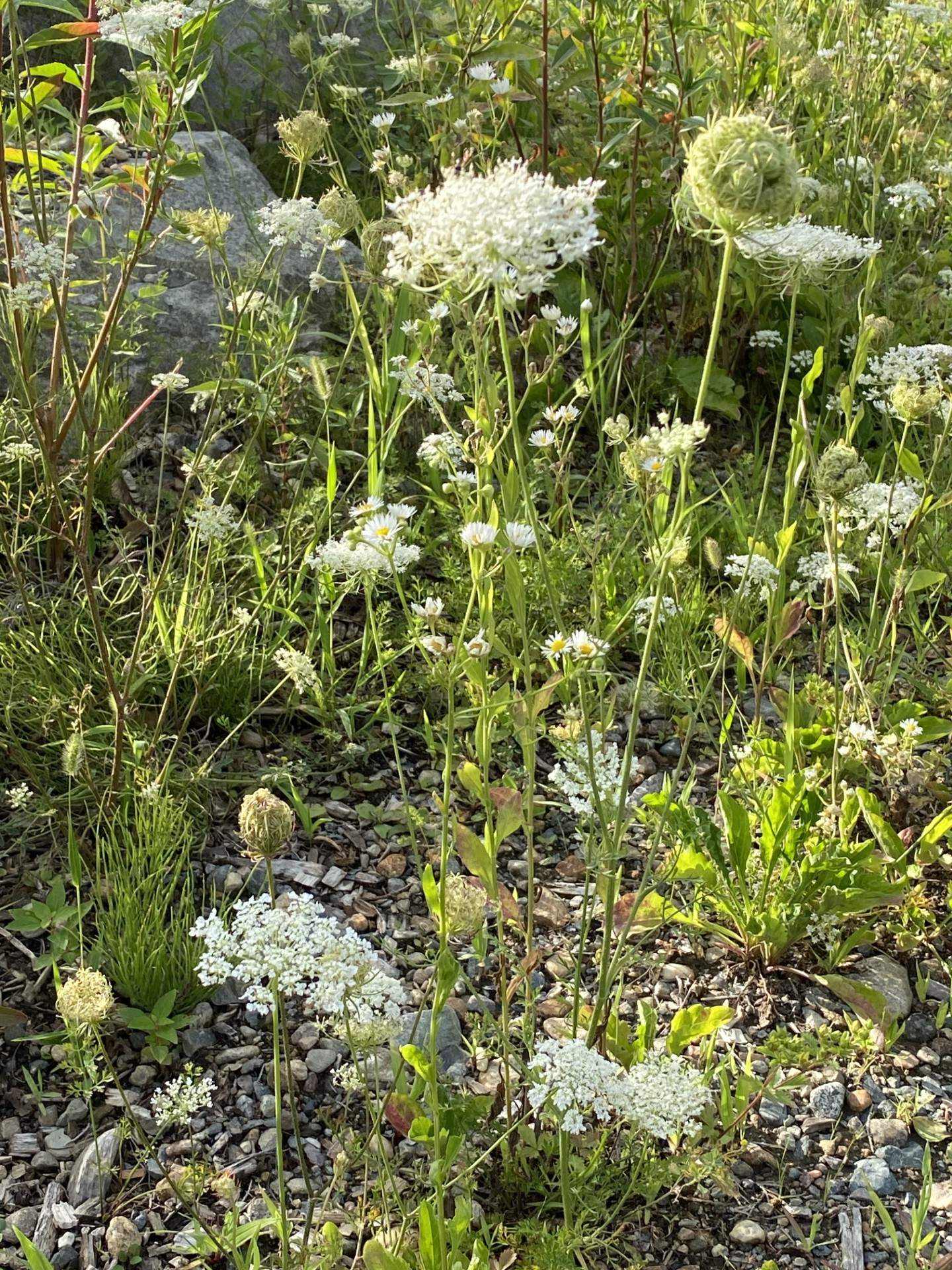
Queen Anne’s Lace (Daucus carota) is a member of the parsley family, and is also commonly known as wild carrot, which is evident from it feathery, aromatic foliage, its umbels of white flowers and the pale, carrot-like tap root it produces. It is a biennial, which means its life span covers two years: the first is spent growing leaves, while in the second year it will send up 2’-3’ tall flower stems, blooming in July and August. It is capable of producing large amounts of seed and once established in the landscape it can be tiresome to eradicate. It is native to Europe and Asia and was introduced to North America due to certain medicinal properties. While not considered invasive, it can become a nuisance in flower beds and meadows where it grows well. Having a tap root means it is well adapted to growing in dry conditions and poor soils and can be difficult to pull up. However, if hand-pulling is your preferred method of removal, experience has taught me that it is easiest to pull either when flowering (the plant is putting its energy into seed production, not roots) or just at the end of winter when cycles of freeze and thaw loosen the hold the young tap roots have in the ground. Please note that contact with this plant can cause a mild allergic reaction in those with sensitive skin. It should also be stated that it bears some visual similarities with poison hemlock. Poison hemlock (Conium maculatum) which is toxic can be distinguished by its greater size, preference for moist soil and that its stems are marked with purple spots.
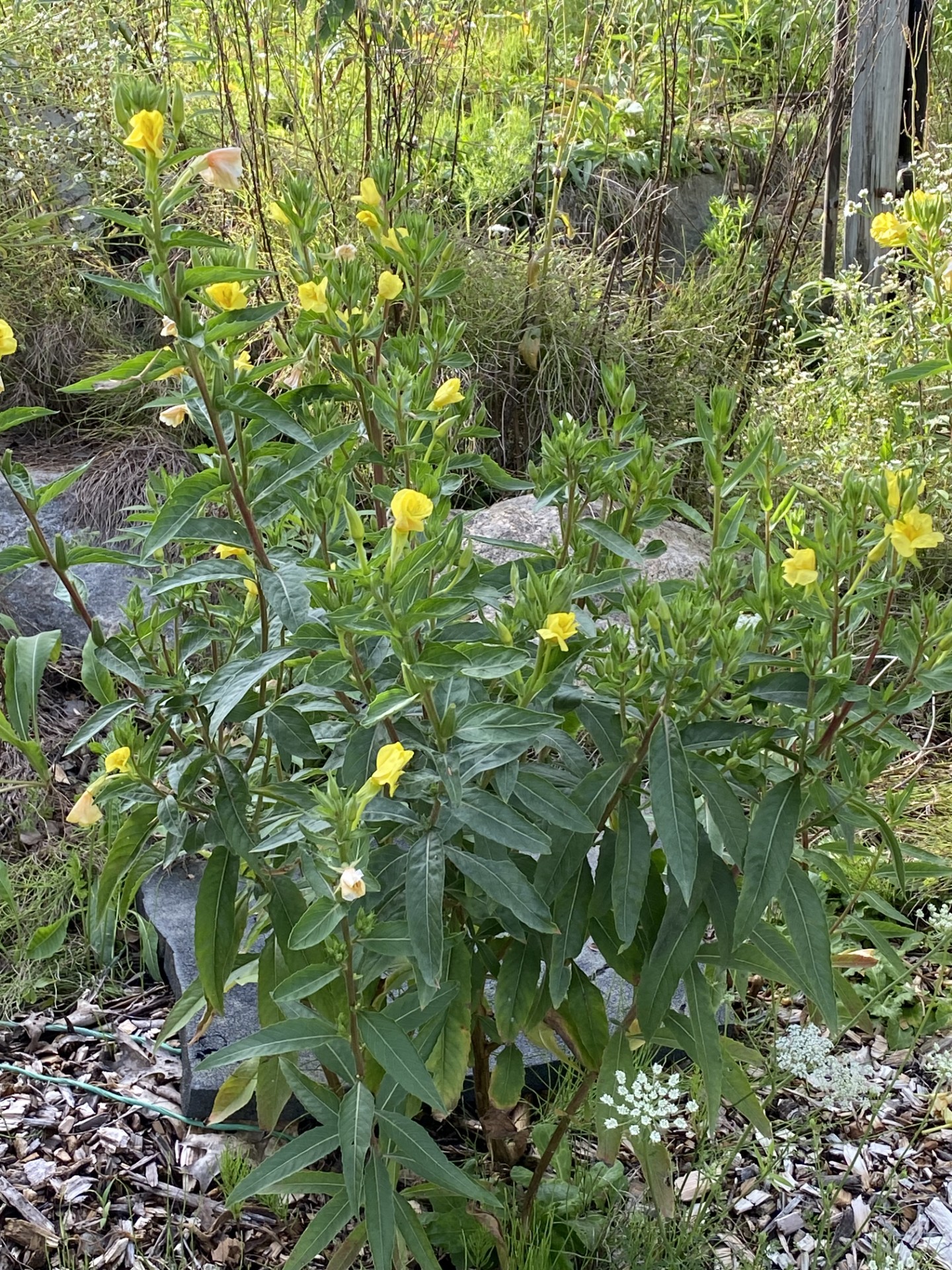
Common evening primrose (Oenothera biennis) is another biennial plant which also has medicinal properties as the seeds of this plant contain gamma linolenic acid, an anti-inflammatory compound used in the treatment of cardiovascular and arthritic conditions. It spends the first year of life as a compact rosette of pointed leaves and the following year will then grow a tall flower stalk. Depending on the conditions it is growing in, this stalk can be single or branched and range in height from three to seven feet. It too develops a tap root which enables it to take advantage of disturbed soils, even those of poor nutritional value and limited moisture. Its yellow cup-shaped flowers are many and open late in the day and last until the sun’s heat hits them the next day. As a native plant of the eastern U.S., it attracts a variety of pollinators, including moths, bees and on occasions even hummingbirds. If allowed to set seed it will also provide food for finches and other seed-eaters. It can make an interesting plant for wildflower gardening but should ideally be kept to the back of the border or in a meadow setting. If allowed to grow in garden beds, be aware that seedlings can be many and often seem happiest to germinate where they are not required!
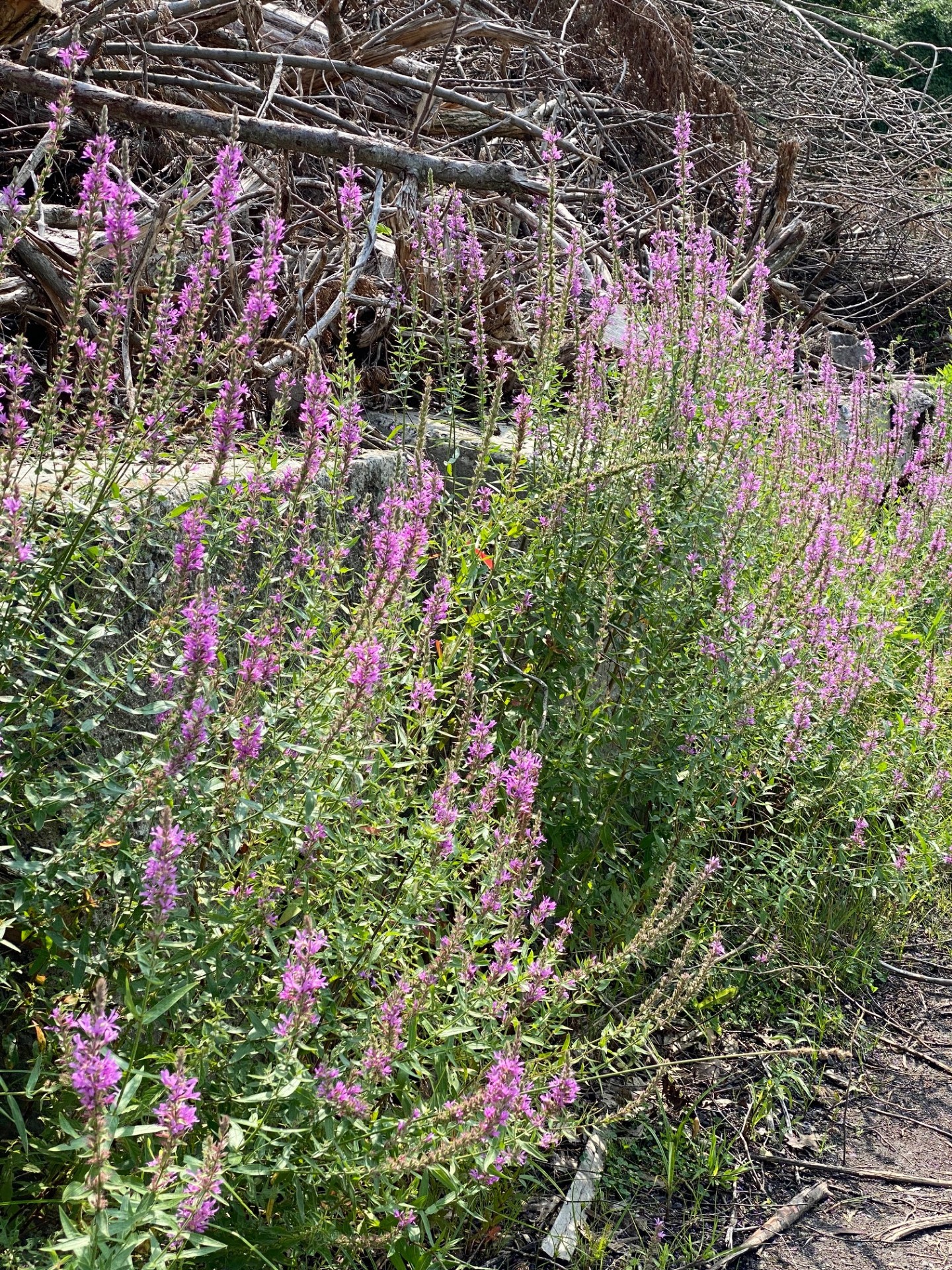
Purple Loosestrife (Lythrum salicaria) might well be the prettiest of this bunch but is also the least desirable from an environmental perspective. Native to Europe and Asia, it has escaped from cultivation and is now overwhelming wetlands in New England, destroying native plants as it spreads and consequently affecting the biodiversity and food chain of these areas. It is not an easy one to remove, having a deep, strong and spreading root system, which explains in part why it gets such a hold on our wetlands and as such has been classified as invasive. It is a perennial and each year will produce multiple 2-3’ tall flower stems which are covered for several weeks in summer with small purple flowers which in turn will produce a large quantity of seed. Once again, our generalist insect pollinators are happy to provide their services, but this is a plant that should not be encouraged. If you have it growing in wetlands on your property, please contact your town’s conservation department regarding the best way to deal with it if there is more than hand-pulling can deal with. It should also be noted that it doesn’t confine itself to wet areas – it can establish itself in drier conditions, so one should always be on the lookout for it sprouting in gardens.
Sources:
Daucus carota (wild carrot): Go Botany (nativeplanttrust.org)
Oenothera biennis (common evening-primrose): Go Botany (nativeplanttrust.org)
Lythrum salicaria (purple loosestrife): Go Botany (nativeplanttrust.org)

